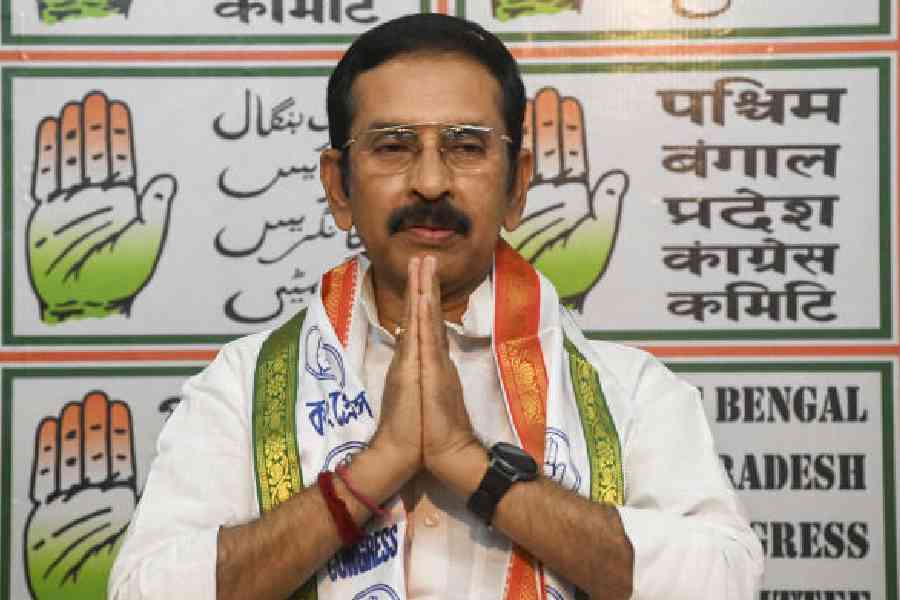The Bengal leadership of the Congress on Thursday urged the Election Commission of India to convene an all-party meeting for the state before starting the contentious special intensive revision (SIR) processes here.
It said that otherwise, many flaws found in the case of Bihar SIR could get replicated in Bengal, making it dangerous for democracy. Bihar is set for Assembly polls on November 6 and 11 while the Bengal election is due in the summer of 2026.
Led by state Congress chief Subhankar Sarkar, the delegation comprised state leaders Prasenjit Bose, Ashutosh Chatterjee, Prasanta Dutta, Roahan Mitra and Pooja Roy Choudhury.
They met Bengal chief electoral officer Manoj Kumar Agarwal, handing him a memorandum for chief election commissioner Gyanesh Kumar.
“Before the schedule for the SIR in Bengal is announced, it is imperative that the EC conducts a review of the Bihar SIR experience, along with recognised national and state parties, and other stakeholders in the electoral system. The focus of the review should be on whether the SIR exercise has lived up to EC’s motto of ‘no eligible voter to be left out, and no ineligible person to be included in the electoral rolls’,” said Bose, chief of the state unit’s committee to safeguard right to vote and citizenship.
“The Bihar SIR process has been both exclusionary and non-transparent, and the PCC demands specific modifications to the SIR process for Bengal,” he added.
The Congress state leadership stressed that given the modifications in the Bihar SIR already introduced through the interim orders of the Supreme Court, the EC should open-mindedly consider all constructive suggestions from recognised political parties in addressing the design defects and loopholes in the SIR process.
“Mapping the electors in the 2025 draft roll with the base roll for SIR (the 2002 electoral roll in Bengal) should be completed by the EC first. The result of such mapping should be disclosed transparently.... EC officials like DEOs and EROs should also conduct software-based demographic de-duplication and prepare a list of demographically similar entries. Duplicate or multiple enrollments should be deleted only after due verification in the enumeration phase,” the Congress memo read.
“Similarly, EC officials should collect data on registered deaths from the registrar of births and deaths and link them with the base electoral roll to identify and enlist possibly deceased electors. Names of deceased electors should be deleted only after due verification in the enumeration phase.... House-to-house verification by the BLOs must be made mandatory in the enumeration phase, under the supervision of EROs,”it added.
“The onus of online submission of enumeration forms of electors in a booth should be on the concerned BLO.... Specific guidelines need to be framed for ascertaining an elector as ‘permanently shifted’, especially for married women and other migrants,” it said.
Bose said the Congress also made it clear that the convoluted exercise of deleting the names of existing electors for non-submission of enumeration forms within 30 days and then requiring them to fill Form 6 for re-enrollment as a new elector within the next 30 days (claims and objections period), needs to be discontinued.
“There should be no need to provide documents for the father and/or mother of a voter to establish the parents’ dates/places of birth. Many in Bengal are post-Partition refugees, who do not have such documents,” added Bose.











